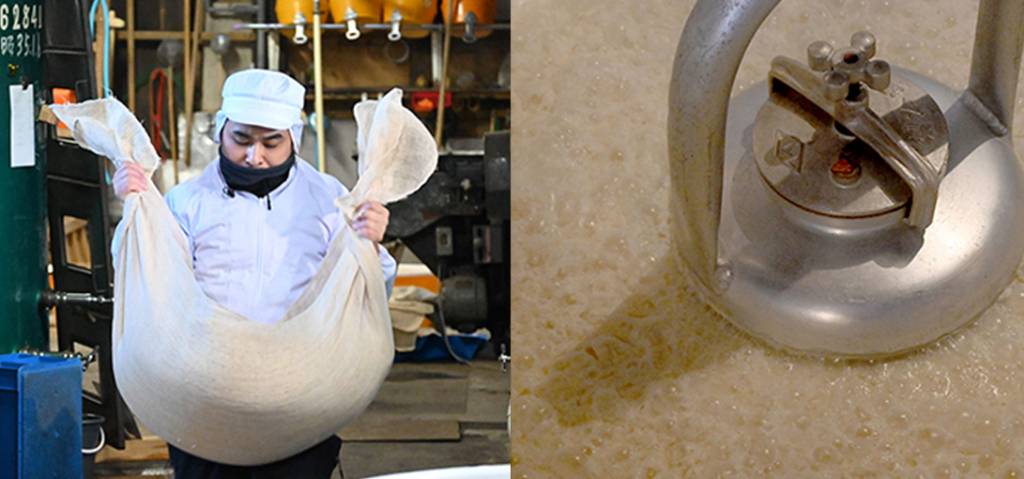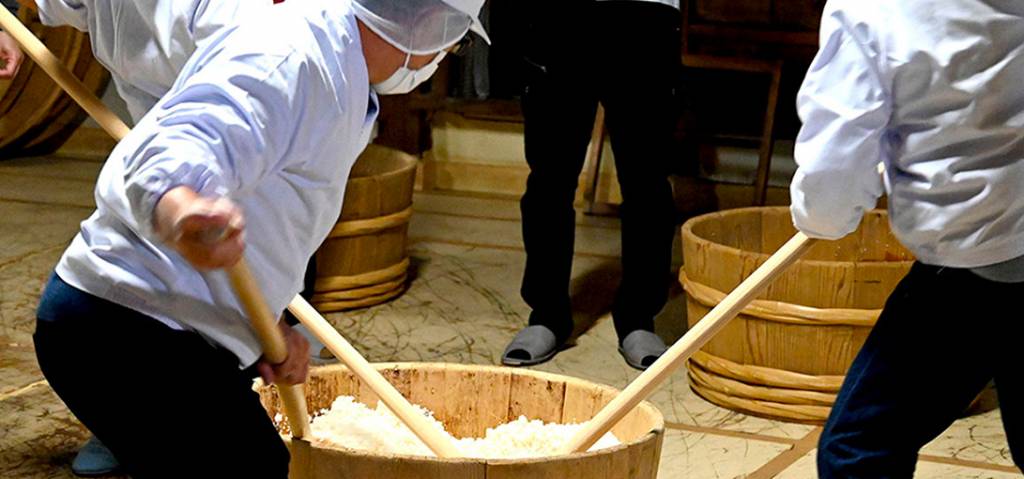
Pure rice brewery brewed only with rice, koji and water
Since 1998, Moriki Sake Brewery has been making only hand-made junmaishu, which is brewed only with rice, koji, and water without adding brewing alcohol.
Junmai sake is an honest sake. As a result of pursuing the sake that we, the sake brewers, really want to drink, all the sake we make has become “Junmaishu”.
What we are aiming for is a sake that has a modest aroma and can be enjoyed with meals, sometimes chilled or sometimes warmed.
We make sake with as much care as possible because it is a small production of 300 koku.

Making koji using the futa koji method
All koji is made using a traditional method called the “futa koji method”.
In sake brewing, there is a saying, “first koji, second moto (shubo), third making (moromi)”. The quality of koji has a great impact on the cultivation of the shubo, the management of the moromi, and ultimately the quality of the sake itself. In other words, in order to make strong and good sake, it is necessary to make a solid quality koji.
The point of making koji is the control of temperature and humidity. Koji is made in a hot and humid room with a temperature of 30 to 32 degrees Celsius, called a kojimuro, for about 46 to 56 hours. In this kojibuta method, the rice is placed in a special small box called a “kojibuta” and reloaded (moving the kojibuta location) every four hours. Since the temperature and humidity vary depending on the location of the koji lid, such as the center, corner, upper and lower levels of the koji room, place the koji lid with the lowest temperature in the center, the upper koji lid on the lower level, and the lower koji lid on the upper level. By replacing and repeating this, we aim to make the whole uniform.
This futa-koji method requires a lot of labor for the filling, intermediate work, and closing work because the capacity of the lid is small. However, since there is little unevenness and the koji mold spreads evenly on all the rice, we believe that this method is the surest way to produce quality koji.


